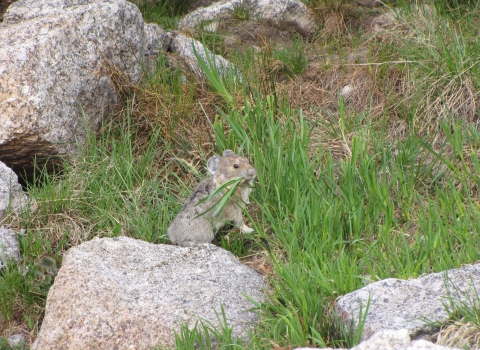Asheville Field Office biologist Jay Mays spent the first days after Hurricane Helene working a supply distribution site, helping get water, food, diapers, and myriad other necessities to his own community and transporting them to neighboring counties. Mays is an aquatic biologist with the Service’s Asheville Field Office, and when the dust began to settle after the hurricane, he turned his attention to impacts on the area’s streams, many of which are home to the endangered Appalachian elktoe mussel.
His preliminary assessments focused on stream erosion, with broad-brush, bank-side evaluations and short stream wades with a view bucket allowing a glimpse of the stream-bottom habitat mussels rely on. This first look turned up streams whose habitat was devastated by scouring floodwater, but surprisingly, also places where the stream seemed largely…normal – a casual observation being that stream habitat fared better in areas where flood waters had ample space to spread out and slow down adjacent to the stream channel.
The potential for stream water contamination from the flood, as well as the dropping temperatures of late autumn mean that a thorough examination of impacts to aquatic life will wait until spring, when it’ll be safe for biologists to don snorkel and mask and log hours face-down in the water.
In the interim, Mays turned his attention to gaining a deeper understanding of where mussel food – algae, bacteria, and other microscopic life they filter from the water column – could be found, with an eye to better understanding pre-storm mussel distribution and where potential post-storm restocking efforts might be focused.
Mays recently joined forces with Madison Polera for a day of peering through a microscope, looking for mussel food in water samples collected at several points across the upper French Broad River watershed. Polera is a graduate student at North Carolina State University, and an intern in the Service’s Tennessee Ecological Services Office. Hurricane Helene’s damage to I-40 greatly hampered her ability to work in Tennessee, so she hunkered down in Western North Carolina, doing remote work for the Tennessee office, and lending a hand to the Asheville office when possible.










